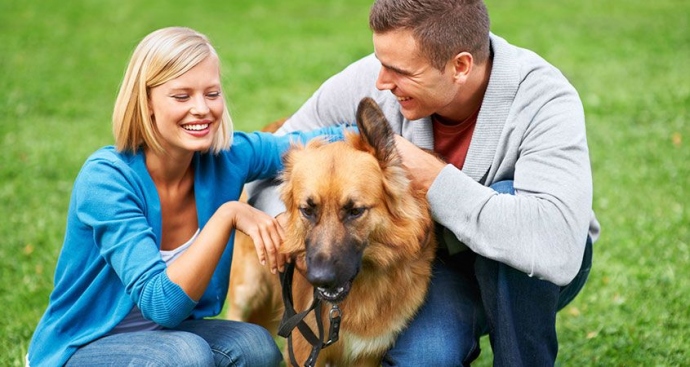It is a fact that dogs are wonderful creatures and has been observed that they can get used to many conditions and situations. They show extraordinary ability at associations as well as learning and grasping the meaning of learning or inference of varied sounds for example language of humans. A dog can retain a vocabulary of 150 distinct words. Nevertheless, apart from the qualities of smartness, how skilled, and adaptability they show, dogs cannot be in any way verbal animals. The first language they learn is not words; it is only body language they catch up. With the help of body language, your dog will be able to understand your words even if the filter of facial expression, body language, your attention, and tone of your voice. Almost all dogs will follow body language, even if there is disagreement with the words you use with your dog.

For best dog training services alphaandomegadogtraining.com is the best option.
Miscommunication is the result of most technical hitches in the process of dog training, not of dominance, disobedience or obstinacy. It also depends on the training you are giving to your dog whether it is in canine sports, family pet or working dog. If you want to make most out of the training, you should be able to communicate through your body language.
Communication starts with Attention
It is probably the attention you are giving to your dog is the prime type of communication. This is the fact regarding instructing a new skill, or you are taming some advanced behavior, or you are working on old one. As you show your attention to actions or something your dog will do using voice, touch, smiling, laughter, or eye contact, you invite attention to the behavior. This gives your dog message that you approve his behavior that is worth to be taken an interest in. Dogs are sociable creatures and react to attention and interaction that is there. They give importance to it and try to work towards it and do not think about the behavior whether it is reinforcing in or not. During instruction period bear one thing in mind that you should not reward its behavior actively for reinforcing it.
In a dog training session, you should be committed to focus on your pup to the extent you want your dog to focus on you. If you are inattentive or unfocused, do not take part in training. These things can be considered as fundamental to give thought and reverence a good friend demands. It is not necessary to stare at your dog, if you want to be attentive to your pet, what matters is that you must be conscious of him. A good instructor is conscious and present during training. The trainer is ready and capable of noticing and rewarding its fine response. If your dog responds in a manner you had not anticipated, don’t give attention to it verbally or in some other way, ignore it and carry on the training. If you want to address the poor responses from a dog that he is most probably to repeat them, you should concentrate your energy on the responses you want him to give.

